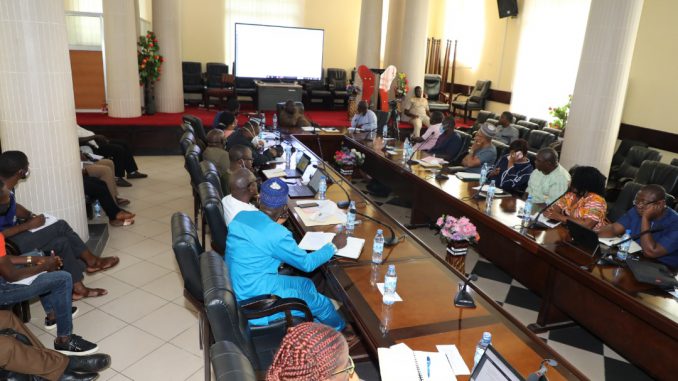
NCRA, Freetown, Friday 6 November 2020 – The Director-General (DG) of the National Civil Registration Authority (NCRA), Mohamed Mubashir Massaquoi has held a legislative review meeting with stakeholders to further discuss issues relating to the amendment of the NCR Act of 2016, at the Ministry of Finance Conference room on George Street, Freetown.
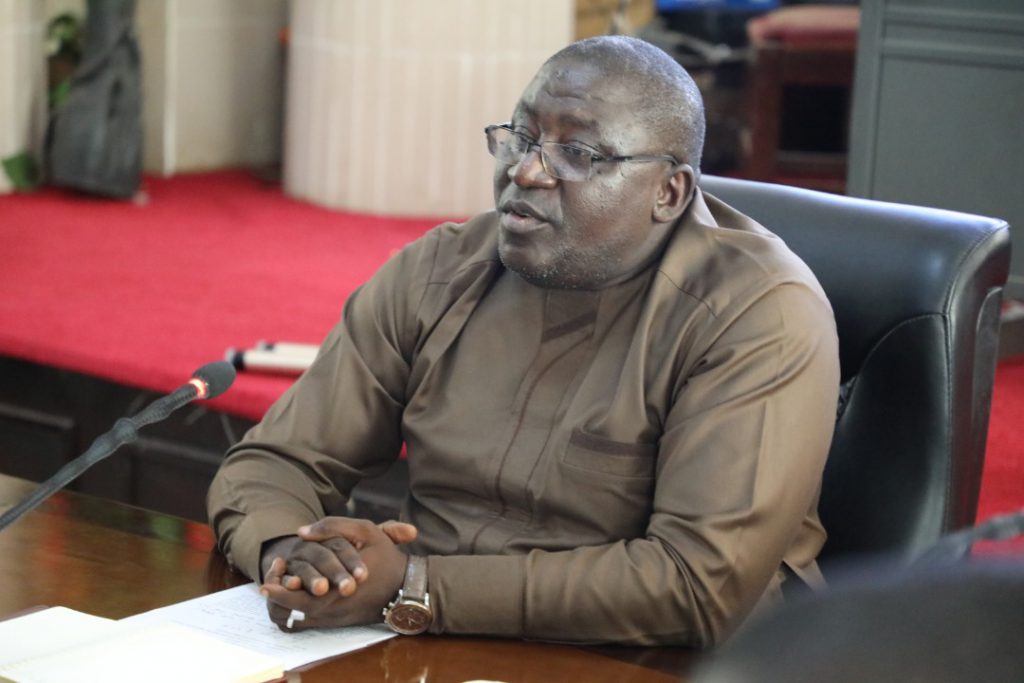
The meeting was part of the NCRA’s continued engagement with stakeholders critical to strengthening civil registration, vital statistics and identity management in Sierra Leone.
Participants present were: Statistics Sierra Leone-STATS-SL, National Elections Watch, Center for Accountability and the Rule of Law (CARL-SL), Media Institutions, National Electoral Commission (NEC), Office of the Administrator and Registrar General (OARD), Women’s Forum Sierra Leone, Society for Democratic Initiative (SDI), Fifty – Fifty Group and Senior Management staff of the NCRA.
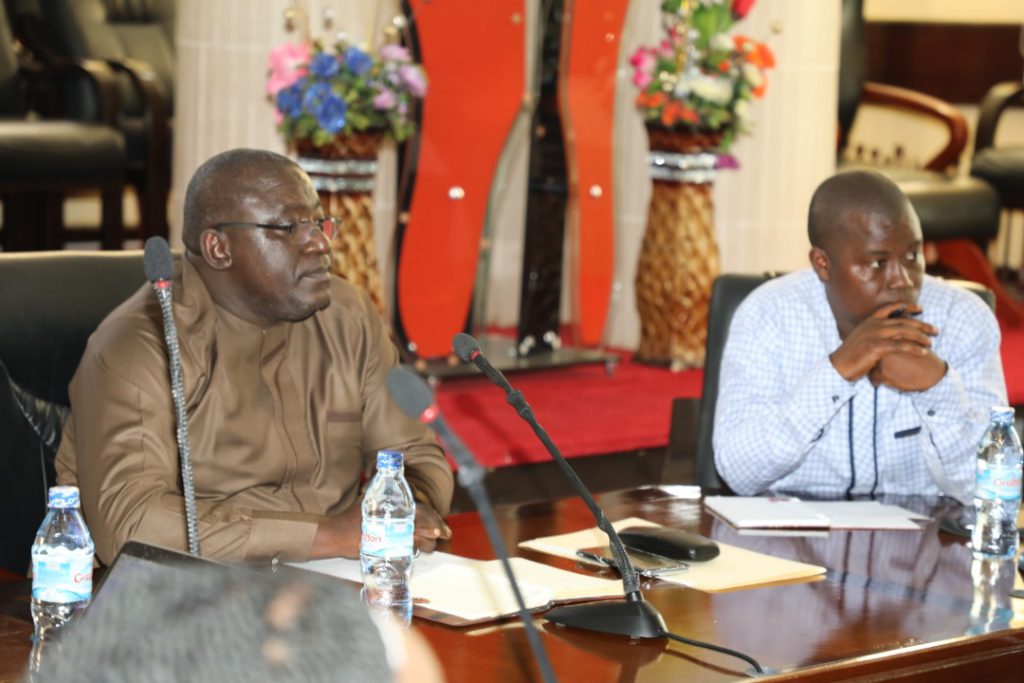
The DG Mohamed Mubashir Massaquoi informed stakeholders that the essence of the meeting was to critically look at the conflicting and overlapping laws of the NCR Act of 2016 with other laws of the country. The DG also pointed out that there are gaps in the NCR Act of 2016, and therefore stakeholders present should effectively brainstorm on how those issues can be adequately addressed going forward.
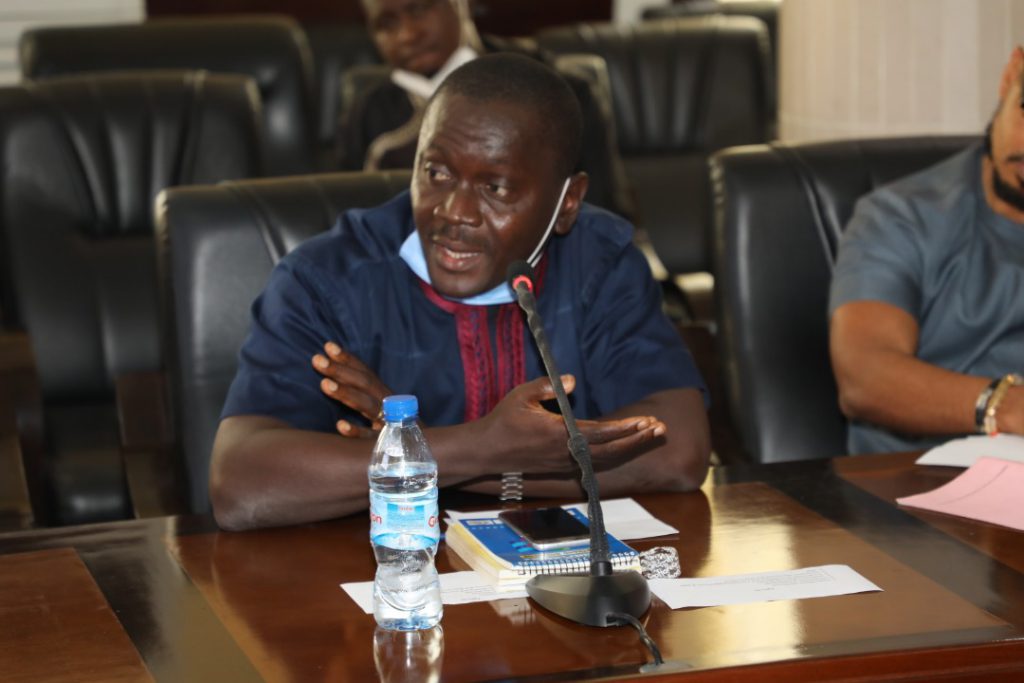
Mr. Massaquoi noted that the NCRA had been partnering with these stakeholders, since the development of the policy reform that informed the enactment of the NCR Act of 2016, as well as the establishment of the Authority itself and to date.
He therefore recognized and deemed it very necessary to continue discussions with stakeholders, especially on issues bordering on the furtherance of the Authority.
The DG said that since the establishment of NCRA to manage Civil Registration, Vital Statistics and Identity Management in an integrated version on the population of this country, a number of issues have been identified relating to the law that establishes NCRA, which have prompted the Authority to call on the technical support of stakeholders in putting mechanism in place to resolving some of these issues.
“We, in consultation with all of you and our development partners have been discussing the way forward on it. At some point there is need for all of us to come together to see where we are with it, and were we can move forward,” the DG said.
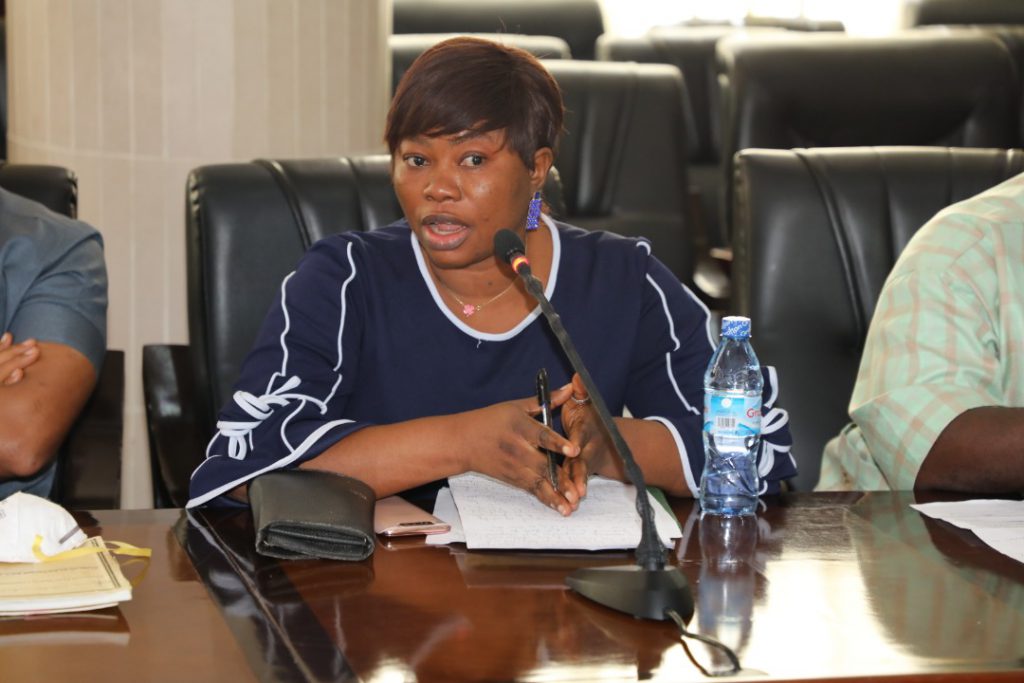
The DG also informed participants that during the comprehensive country assessment that was done by the United Nations System on the CRVS and ID Management landscape, there were issues that came up which required intervention in terms of working on the legislation, the policy, and the development of the regulations to ensure that the NCR Act of 2016 is positioned in a way that it can support the Authority and Government as a whole in order to achieve the desired objective for which the NCRA was established.
Mr. Massaquoi alluded that the essence for the integrated CRVS system was to address the challenges faced during a fragmented civil registration in the country. He noted that the data that had been providing by those institution was unreliable and misleading.
During his presentation on conflicting and overlapping legislations and gaps of the NCR Act of 2016, Consultant Emmanuel Saffa Abdulai Esq said that when the NCR Act was drafted in 2016 Sierra Leone had not basically implemented an integrated civil registration system, “therefore, the Act was drafted to suit a beginner, a new child in the issue of NCRA,” he added.
He noted that over the years a lot of issues have emerged out of perception, disagreement and lack of communication between Ministries Department and Agencies (MDAs) and after 4 year since the NCR Act was drafted, it was high time they looked at it. Emmanuel Saffa Abdulai notes further that from their own perspective, they realized that the NCR Act is insufficient as there are lot of things that need to be added. The Consultant announced that the Law Officers Department are drafting amendment to the NCR Act and in order to get it done in a proper way the input of all participants present was crucial, as the aspect of law making has moved away from policy makers just sitting and making laws to consultations.
Emmanuel Saffa Abdulai highlighted sections 25, 27, 33, 34, 35, 37, 38, and 61 as some of the major overlapped in the NCR Act. He mentioned that some of these provisions are in conflict of other institutions that are performing similar functions to that of the NCRA. For instance, he said that section 27 which provides for the recording of vita events conflicts with the Office of the Administrator and Registrar General (OARG) because they also have a law that provides that they are responsible to undertaking marriages and divorces. He underscored the fact that there is no provision in the NCR Act that is of conflict with NEC, as NCRA is the custodian of data residents in Sierra Leone as per the NCR Act 2016.
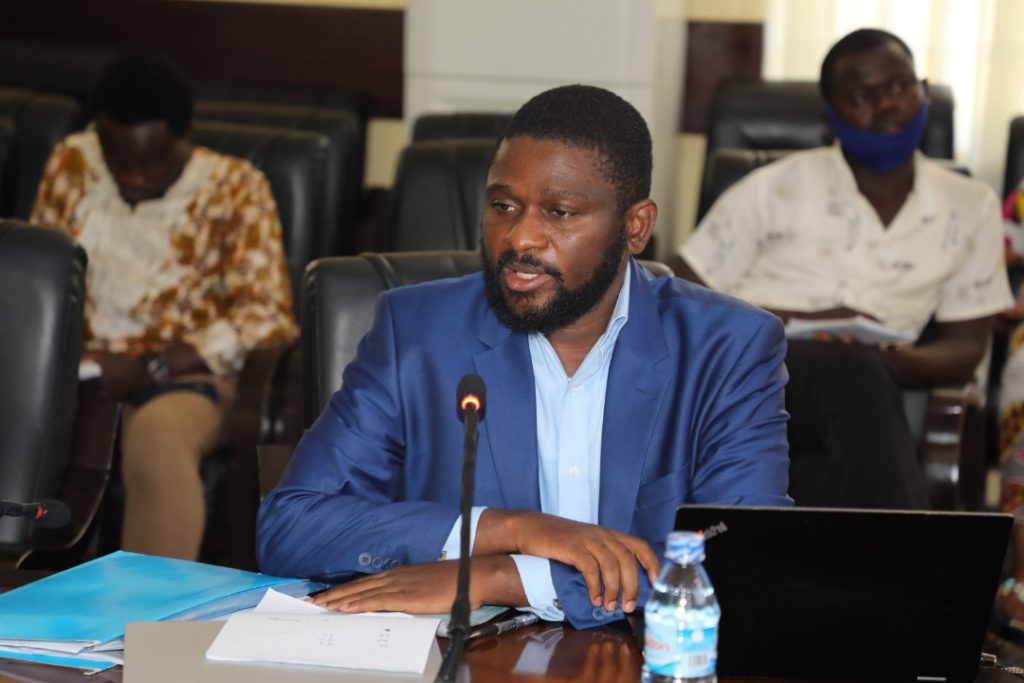
In her submission, Valnora Edwin representing 50/50 group indicated that the need for NCRA to strengthening the communication and relation among agencies cannot be emphasized. She highlighted that it required stronger levels of collaboration as it will aid those agencies to know that there are overlaps in the laws.
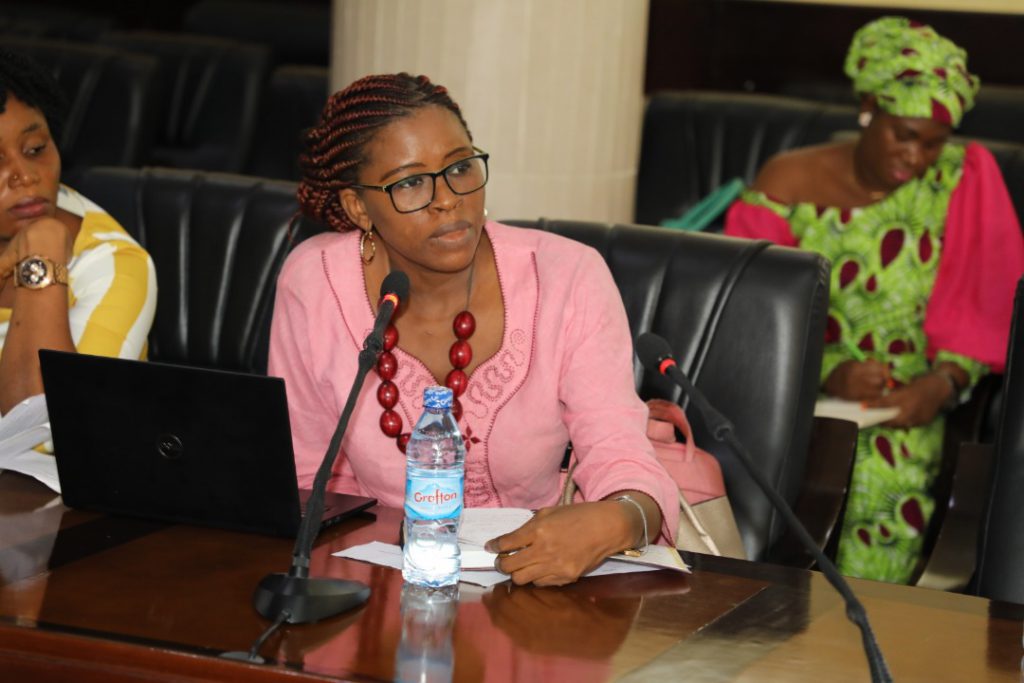
Representative from the Office of the Administrator and Registrar General, Margaret Sumana mentioned that there is a good-will relation between OARG and NCRA, noting that they as an institution have no issues with the work of NCRA but rather they are focusing on executing their function as mandated by law. She assured participants that her office is always ready and willing to furnish NCRA with the required information need.
The Chairman, Coalition for Civil Society and Human Rights Activists Sierra Leone (CCSHRA-SL), Charles Mambu said that changes will not happen overnight as it requires a lot of commitment, perseverance and hard work for NCRA to get where it wanted. He maintained that, having looked at the NCR Act and explanations from Legal Consultant Emmanuel Saffa Abdulai, he realized that registration is crucial and very central in the mandate and function of NCRA. He added that the issue of conflicting legislations does not only stops with the NCRA as it is common within MDAs. Mr. Mambu called on the government of Sierra Leone through the Law Officers Department to speedily look at some of these laws that are conflicting and how they should be amended.
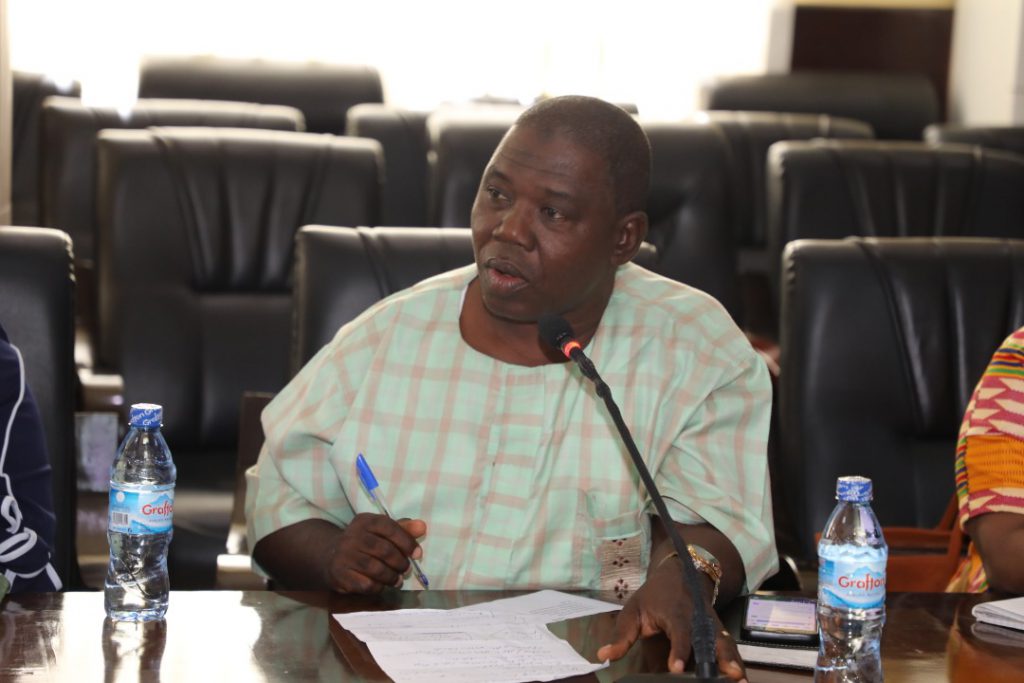
The Executive Secretary William A. Davies and the Director of Legal Fatoma F. Bundeh all of NEC spoke on the need for NCRA to be working ahead of NEC respectively.
During the meeting, Mr. Massaquoi also announced to participants that the NCRA has commenced the procurement process to produce national identity card, as well as ECOWAS compliance identity card. The national ID he said will be for citizens and residents in the country while the ECOWAS ID will be on demand for people who might want to travel to the sub-region and without passport. He assured participants that the process of issuing out national ID will be purely decentralized so that people will be able to access their ID card easily.
He also informed stakeholders that the Confirmation of Personal Details of citizens and non-citizens resident and the registration of the unregistered population exercise which was to take place sometimes in March this year but halted by the Covid – 19 Pandemic will now commence any time soon after consultations would have held with relevant stakeholders such as CSO’s, Political Parties, and NEC, etc.
©️IEC Directorate, NCRA
Leave a Reply